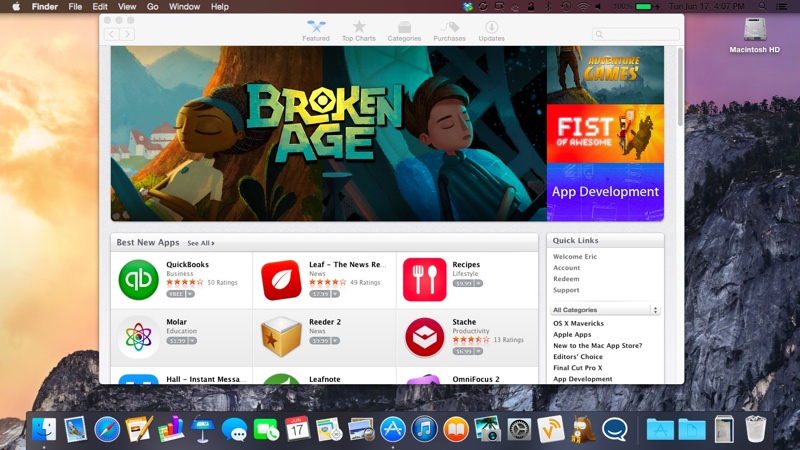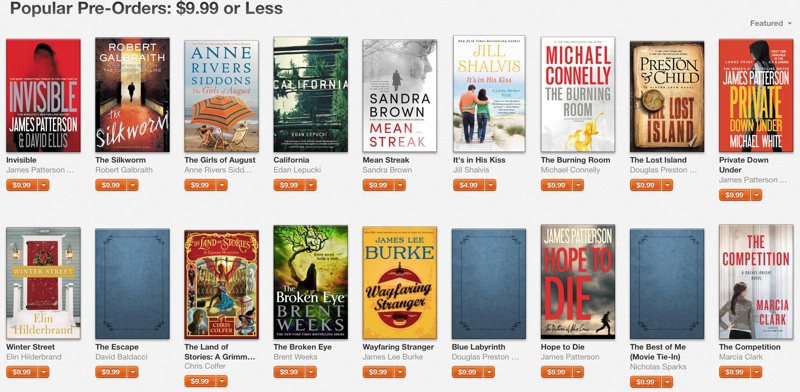AT&T, Apple Begin Paying $40 to U.S. iPad 3G Purchasers After Unlimited Data Lawsuit [iOS Blog]
AT&T and Apple have begun sending out payments to consumers in the United States who purchased an original iPad 3G, following the culmination of a long-running class action lawsuit over unlimited data.
Originally settled in September of 2013, the lawsuit covered a $29.99 no-contract unlimited data plan that Apple and AT&T offered with the original iPad — a deal that Steve Jobs advertised on stage when the tablet was revealed in January of 2010.
In June of 2010, AT&T stopped offering the plan and replaced it with a 2GB for $25/month plan. AT&T did grandfather in users who had an unlimited plan prior to June 2010, but the company also began throttling unlimited users in October of 2011.
The class action lawsuit accused Apple and AT&T of using bait-and-switch tactics, selling iPads that advertised unlimited data without actually providing unlimited data. The lawsuits also suggested that without the prospect of an unlimited data plan, consumers had overpaid for their tablets. Apple and AT&T’s settlement, which called for the companies to send out $40 checks to all affected customers, was finalized in February. As noted by 9to5Mac, checks are now arriving to customers.
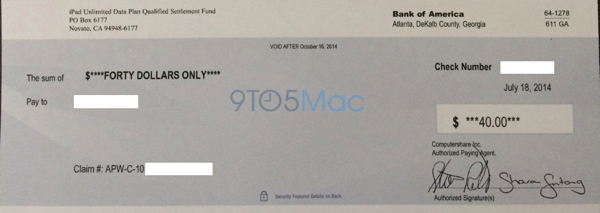
Enclosed is a check in the amount of $40.00 representing your settlement in the award of Apple & AT&T iPad Unlimited Data Plan Litigation. The amount of your settlement award has been calculated pursuant to the terms of the Settlement that was approved by the court. Pursuant to the terms of the settlement, the enclosed check must be cashed by October 16, 2014; after that date, the check will be void and will not be reissued. If you have any questions, you can contact the Settlement Administrator at 1–800–248–1504.
Under the terms of the settlement, AT&T is also required to offer customers a $20 discount on the $50/month 5GB data plan, but the deal is only available to customers who do not have another data plan with AT&T due to no-class action provisions in their contracts.![]()
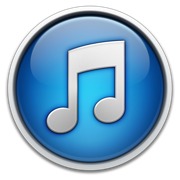 During its
During its  The Apple TV may gain a new FXNOW channel that includes Simpsons World content, according to TV writer Jason Lynch who
The Apple TV may gain a new FXNOW channel that includes Simpsons World content, according to TV writer Jason Lynch who 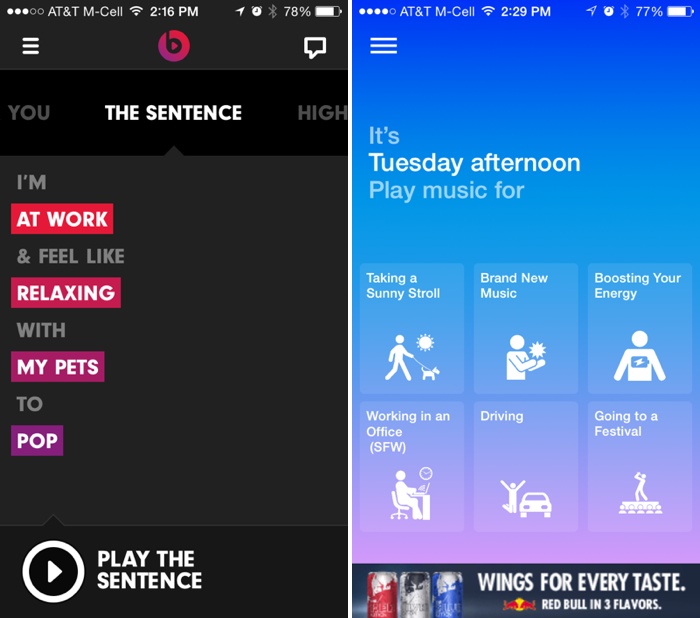 Beats Music app on the left, Songza app on the right
Beats Music app on the left, Songza app on the right 
